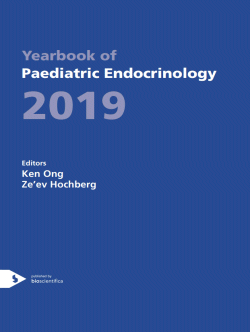3. Thyroid
Thyroid Hormone Action
ey0016.3-2 | Thyroid Hormone Action | ESPEYB16
3.2. Thyroid hormone signaling specifies cone subtypes in human retinal organoids
KC Eldred , SE Hadyniak , KA Hussey , B Brenerman , PW Zhang , X Chamling , VM Sluch , DS Welsbie , S Hattar , J Taylor , K Wahlin , DJ Zack , RJ Jr Johnston
ey0016.3-3 | Thyroid Hormone Action | ESPEYB16
3.3. Genome-wide analyses identify a role for SLC17A4 and AADAT in thyroid hormone regulation
A Teumer , L Chaker , S Groeneweg , Y Li , Munno C Di , C Barbieri
ey0016.3-4 | Thyroid Hormone Action | ESPEYB16
3.4. Non-thyroidal illness syndrome in critically ill children: prognostic value and impact of nutritional management
A Jacobs , I Derese , Perre S Vander , Puffelen E van , S Verstraete , L Pauwels , S Verbruggen , P Wouters , L Langouche , Guerra G Garcia , K Joosten , I Vanhorebeek , Berghe G Van den




